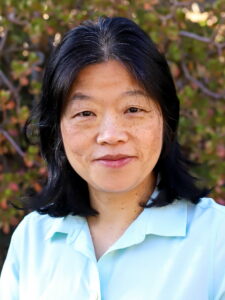Speakers
7th IAAASS Confirmed Speakers:
Graciela Andrei (Leuven, Belgium)
Ben Berkhout (Amsterdam, The Netherlands)
Andrea Brancale (Prague, Czech Republic)
Valeria Cagno (Lausanne, Switzerland)
Angela Corona (Cagliari, Italy)
Joy Feng (San Francisco, CA – USA)
Brian Gowen (Logan, UT – USA)
Philip Gribbon (Hamburg, Germany)
Reuben Harris (San Antonio, TX – USA)
Johan Neyts (Leuven, Belgium)
Jay Schneekloth (Frederick, MD – USA)
Kathie Seley-Radtke (Baltimore, MD – USA)
Vincenzo Summa (Naples, Italy)
Damian Young (Huston, TX – USA)
 GRACIELA ANDREI holds a PhD in Biological Sciences and is an Assistant Professor at the Faculty of Medicine, Katholieke Universiteit Leuven, Belgium. At the Rega Institute for Medical Research, Department of Microbiology and Immunology, she carries out her research work that is mainly focused on chemotherapy of viral diseases, with emphasis on herpesviruses (cytomegalovirus, varicella-zoster virus and herpes simplex), poxviruses (vaccinia, cowpox, orf), polyomaviruses and papillomaviruses, and the study of the molecular mechanisms underlying the antiviral drug resistance phenomenon and anticancer activity of nucleotide analogues. Dr. G. Andrei has authored approximately 30 and co-authored approximately 260 papers in international peer-reviewed journals between 1983 and 2011. She has also (co)authored 6 book chapters and 10 proceedings articles and about 260 published abstracts between 1983 and 2011.
GRACIELA ANDREI holds a PhD in Biological Sciences and is an Assistant Professor at the Faculty of Medicine, Katholieke Universiteit Leuven, Belgium. At the Rega Institute for Medical Research, Department of Microbiology and Immunology, she carries out her research work that is mainly focused on chemotherapy of viral diseases, with emphasis on herpesviruses (cytomegalovirus, varicella-zoster virus and herpes simplex), poxviruses (vaccinia, cowpox, orf), polyomaviruses and papillomaviruses, and the study of the molecular mechanisms underlying the antiviral drug resistance phenomenon and anticancer activity of nucleotide analogues. Dr. G. Andrei has authored approximately 30 and co-authored approximately 260 papers in international peer-reviewed journals between 1983 and 2011. She has also (co)authored 6 book chapters and 10 proceedings articles and about 260 published abstracts between 1983 and 2011.

BEN BERKHOUT studied molecular biology at Leiden University and obtained his PhD in 1986 on translational control by means of RNA structure in bacteriophages. He performed postdoctoral research at the Dana Farber Cancer Institute (Harvard Medical School) and the National Institutes of Health (USA). He became Head of the Laboratory of Experimental Virology and was appointed Professor of Human Retrovirology the University of Amsterdam in 2002. BB is editor-in-chief of Virus Research and editor for several journals. He supervised 49 PhD students and published over 580 manuscripts on HIV-1 replication, virus evolution, virus discovery and new antiviral therapeutic strategies.
ANDREA BRANCALE is Chair of Medicinal Chemistry at University of Chemistry and Technology, Prague, and Honorary Professor of Medicinal Chemistry at the Cardiff School of Pharmacy and Pharmaceutical Sciences, Cardiff University. He received an undergraduate degree in Chimica e Tecnologia Farmaceutiche from the University of Rome “La Sapienza” in 1996. In 2001 he was awarded a PhD from the Cardiff University for a thesis on a new group of nucleosides with anti-VZV activity. From February 2001 to September 2002 he undertook post-doctoral research in Professor Chris McGuigan’s group, working on an antiviral project sponsored by GSK. As a Lecturer, he has focused his research on molecular modelling and computer-aided design, with an emphasis on the development of novel anticancer and antiviral compounds. He has authored more than 190 peer-reviewed articles (WoS H-index: 39; Scopus H-Index: 41; Google Scholar H-Index: 45) he is an inventor on 11 patents. He received in 2013 the William Prusoff Young Investigator award for his contribution to antiviral research. Prof. Brancale has been involved in several projects that have moved from basic medicinal chemistry to the clinical evaluation stages. He was a member of the Scientific Advisory board of Synergy Pharmaceuticals (a Nasdaq listed biotech company that developed novel drugs for GI diseases) and he was one of the Scientific Founders of Tiziana Life Sciences (AIM:TISL). He is the co-founder and a director of Ceridwen Oncology Ltd., a company focused on the development of a therapy for a rare cancer. In July 2106 was appointed Scientific Director of the Life Sciences Research Network Wales (http://www.lsrnw.ac.uk).
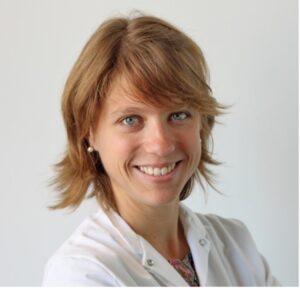 VALERIA CAGNO is a group leader at the Institute of Microbiology of Lausanne, working on broad-spectrum innovative antiviral approaches. She is a Swiss National Science Foundation Ambizione grantee. Previously she was Lecturer in the Department of Microbiology and Molecular Medicine of the University of Geneva. She did her postdoctoral work between the University of Geneva and EPFL. She got her PhD in Medicine and Experimental Therapy from the University of Torino, always working on antiviral strategies.
VALERIA CAGNO is a group leader at the Institute of Microbiology of Lausanne, working on broad-spectrum innovative antiviral approaches. She is a Swiss National Science Foundation Ambizione grantee. Previously she was Lecturer in the Department of Microbiology and Molecular Medicine of the University of Geneva. She did her postdoctoral work between the University of Geneva and EPFL. She got her PhD in Medicine and Experimental Therapy from the University of Torino, always working on antiviral strategies.
Her current research focuses on finding innovative antiviral approaches for respiratory viruses, flaviviruses, and emerging viruses targeting the host cell through kinase inhibition, the viral attachment with nanomaterials mimicking attachment receptors, and viral RNA. She authored and co-authored 53 publications in international journals and she is the inventor of 6 patents [H-index: 24 (WoS) and H-index 28 (Google Scholar)]. Her interests extend beyond viruses and antiviral research to encompass science communication, particularly through podcasting.
JOY FENG received her Ph.D. degree in Medicinal Chemistry from the University of Florida but realized that an enzyme is a much more skilled chemist than her, so Joy decided to enter the enzymology field and did her postdoc training in Dr. Karen Anderson’s lab at Yale. Joy’s primary research interest is antiviral nucleoside and nucleotide analogs, covering viral polymerases, mutation, drug resistance, potential human polymerases as off-targets, and drug-metabolizing pathways. Joy was a Sr. Principal Scientist, project leader, and core member of multiple research projects during her 24 years at Gilead Sciences. Her work has contributed to several marketed antivirals, including remdesivir, the first FDA-approved drug to treat COVID-19.
 BRIAN GOWEN is a Professor of Virology in the Department of Animal, Dairy, and Veterinary Sciences (ADVS) and Director of the Institute for Antiviral Research (IAR) at Utah State University. He received a Ph.D. in Biomedical Sciences from the University of South Carolina School of Medicine in 2000, specializing in microbiology and immunology. Before that, he obtained a bachelor’s degree in microbiology from Colorado State University. Brian trained as a postdoctoral fellow at the Rocky Mountain Laboratories campus of the National Institute of Allergy and Infectious Diseases, National Institutes of Health, in Hamilton, Montana, from 2000-2004, where he studied host-pathogen interactions. He joined the ADVS department and the IAR in 2004 and specializes in the preclinical development of antiviral therapies to treat and prevent severe disease caused by arenaviruses and bunyaviruses, immunity to viral infections, modeling viral diseases, and virus-host cell interactions. Brian has published more than 80 peer-reviewed journal articles, holds three patents, is a former recipient of the William Prusoff Memorial Award, and serves on the editorial boards of Antiviral Research and Scientific Reports.
BRIAN GOWEN is a Professor of Virology in the Department of Animal, Dairy, and Veterinary Sciences (ADVS) and Director of the Institute for Antiviral Research (IAR) at Utah State University. He received a Ph.D. in Biomedical Sciences from the University of South Carolina School of Medicine in 2000, specializing in microbiology and immunology. Before that, he obtained a bachelor’s degree in microbiology from Colorado State University. Brian trained as a postdoctoral fellow at the Rocky Mountain Laboratories campus of the National Institute of Allergy and Infectious Diseases, National Institutes of Health, in Hamilton, Montana, from 2000-2004, where he studied host-pathogen interactions. He joined the ADVS department and the IAR in 2004 and specializes in the preclinical development of antiviral therapies to treat and prevent severe disease caused by arenaviruses and bunyaviruses, immunity to viral infections, modeling viral diseases, and virus-host cell interactions. Brian has published more than 80 peer-reviewed journal articles, holds three patents, is a former recipient of the William Prusoff Memorial Award, and serves on the editorial boards of Antiviral Research and Scientific Reports.
 PHILIP GRIBBON is Head of Discovery Research at the Fraunhofer Institute for Translational Medicine and Pharmacology in Hamburg, Germany and Director General of the of the EU-OPENSCREEN European Research Infrastructure for Chemical Biology and Screening in Berlin. He is involved in multiple national and European programs on both drug discovery and FAIR data strategies. Previously, Philip was Chief Scientific Officer of the European ScreeningPort GmbH, which provided drug discovery and translational research services. Between 2005 and 2007, Philip was a manager at GlaxoSmithKline, Stevenage, focussed on the development of enabling technologies for drug discovery and development. In the period 2000 to 2005 he was a Principle Scientist at Pfizer working across multiple therapeutic areas. Between 1995- 1999, Philip was at the University of Manchester studying molecular interactions governing the function of connective tissues. He received his PhD in Biophysics from Imperial College London in 1995 and has MSc and BSc degrees in Physics. Philip currently serves as the vice-president of the Society of Laboratory Automation Sciences (SLAS).
PHILIP GRIBBON is Head of Discovery Research at the Fraunhofer Institute for Translational Medicine and Pharmacology in Hamburg, Germany and Director General of the of the EU-OPENSCREEN European Research Infrastructure for Chemical Biology and Screening in Berlin. He is involved in multiple national and European programs on both drug discovery and FAIR data strategies. Previously, Philip was Chief Scientific Officer of the European ScreeningPort GmbH, which provided drug discovery and translational research services. Between 2005 and 2007, Philip was a manager at GlaxoSmithKline, Stevenage, focussed on the development of enabling technologies for drug discovery and development. In the period 2000 to 2005 he was a Principle Scientist at Pfizer working across multiple therapeutic areas. Between 1995- 1999, Philip was at the University of Manchester studying molecular interactions governing the function of connective tissues. He received his PhD in Biophysics from Imperial College London in 1995 and has MSc and BSc degrees in Physics. Philip currently serves as the vice-president of the Society of Laboratory Automation Sciences (SLAS).
REUBEN HARRIS is an investigator of the Howard Hughes Medical Institute (HHMI) and chair of the Biochemistry and Structural Biology department at University of Texas Health San Antonio. He received his B.S. (1993) and Ph.D. (1997) degrees from the University of Alberta and performed postdoctoral work at Baylor College of Medicine (1997-1998), Yale University (1998), and Cambridge University (1998-2003). He joined the University of Minnesota as an Assistant 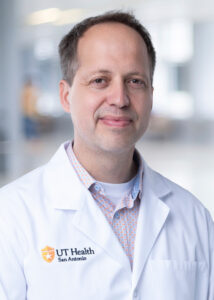 Professor in 2003 and was promoted to Associate Professor with Tenure in 2008 and to Full Professor in 2013. In 2022, Dr. Harris moved his laboratory to University of Texas Health San Antonio.
Professor in 2003 and was promoted to Associate Professor with Tenure in 2008 and to Full Professor in 2013. In 2022, Dr. Harris moved his laboratory to University of Texas Health San Antonio.
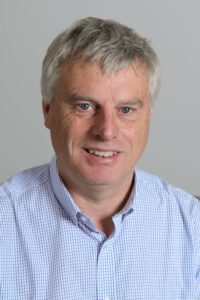 JOHAN NEYTS is full professor of Virology at the University of Leuven (KU Leuven), Belgium where he teaches virology at the medical school and at the school of dentistry. His laboratory www.antivirals.be has a long-standing expertise in the development of antivirals strategies and drugs against emerging and neglected viral infections such as dengue and other flaviviruses, Chikungunya and other alphaviruses, enteroviruses, noroviruses, HDV, HEV, rabies and coronaviruses. An ultrapotent pan-serotype dengue inhibitor developed in his laboratory and at the Centre for Drug Design & Development (www.cd3.be) is currently in phase II clinical studies at Janssen Pharmaceutica (J&J) and efficacy has recently been shown in dengue infected humans. A second focus is on the development of the PLLAV (Plasmid Launched Live Attenuated Virus) vaccine technology, which is based on the yellow fever virus vaccine as a vector. It allows to rapidly engineer highly thermostable vaccines against multiple viral pathogens. Johan is a past-president of the International Society for Antiviral Research. He is the co-founder of KU Leuven spin-off companies AstriVax www.astrivax.com and Okapi Sciences. He is responsible for the Belgian VirusBank platform www.virusbankplatform.be an investment of the Belgian Federal Government in epidemic/pandemic preparedness. He published >660 papers, received multiple national and international awards, has given ~350 invited lectures and a large number of interviews to lay-press.
JOHAN NEYTS is full professor of Virology at the University of Leuven (KU Leuven), Belgium where he teaches virology at the medical school and at the school of dentistry. His laboratory www.antivirals.be has a long-standing expertise in the development of antivirals strategies and drugs against emerging and neglected viral infections such as dengue and other flaviviruses, Chikungunya and other alphaviruses, enteroviruses, noroviruses, HDV, HEV, rabies and coronaviruses. An ultrapotent pan-serotype dengue inhibitor developed in his laboratory and at the Centre for Drug Design & Development (www.cd3.be) is currently in phase II clinical studies at Janssen Pharmaceutica (J&J) and efficacy has recently been shown in dengue infected humans. A second focus is on the development of the PLLAV (Plasmid Launched Live Attenuated Virus) vaccine technology, which is based on the yellow fever virus vaccine as a vector. It allows to rapidly engineer highly thermostable vaccines against multiple viral pathogens. Johan is a past-president of the International Society for Antiviral Research. He is the co-founder of KU Leuven spin-off companies AstriVax www.astrivax.com and Okapi Sciences. He is responsible for the Belgian VirusBank platform www.virusbankplatform.be an investment of the Belgian Federal Government in epidemic/pandemic preparedness. He published >660 papers, received multiple national and international awards, has given ~350 invited lectures and a large number of interviews to lay-press.
 KATHERINE SELEY-RADTKE is a Professor in the Department of Chemistry & Biochemistry at the University of Maryland, Baltimore County. Her medicinal chemistry research focuses on targeting coronaviruses, filoviruses, flaviviruses among other infectious diseases, using her novel “fleximer” nucleoside/tide scaffolds. Prof. Seley-Radtke is currently the President of the International Society for Antiviral Research (ISAR), as well as a past President and current Secretary for the International Society for Nucleosides, Nucleotides & Nucleic Acids (IS3NA). She also chaired of the 2023 Gordon Research Conference on Nucleosides, Nucleotides & Oligonucleotides. Prof. Seley-Radtke also serves as Editor in Chief of Annual Reports in Medicinal Chemistry, and as Associate Editor of Science Advances/AAAS. Some of her other service contributions include her continuing role as one of the U.S. National Academies of Science’s Jefferson Science Fellows with the U.S. Dept. of State and the U.S. Embassy in Moscow, Russia. For the past 22 years, Kathie has served on numerous NIH and other funding agency review panels, including as Chair/Alternate Chair. Most notably, Kathie has been heavily involved in mentoring junior colleagues, and as part of this, when she was President of IS3NA, she initiated the Chu Family Foundation Fellowships for Early Career Women for both IS3NA and ISAR, and she continues to Chair that important committee for both Societies. She has published over 100 papers and book chapters, has 27 patents, given over 170 invited and plenary lectures world-wide, and has received many honors including the American Chemical Society’s Chemist of the Year in 2016, the University of Maryland System’s Regents’ Faculty Award for Excellence in Research in 2017, the 2015-2018 UMBC Presidential Research Professor, as well as one of the Baltimore Sun’s 25 Women to Watch. More recently she was selected as Kathie was awarded the 2020 ISAR Antonín Holy Memorial Award for her outstanding accomplishments and demonstrated service to the antiviral and medicinal chemistry field. The Holy award is the Society’s top honor for chemists.
KATHERINE SELEY-RADTKE is a Professor in the Department of Chemistry & Biochemistry at the University of Maryland, Baltimore County. Her medicinal chemistry research focuses on targeting coronaviruses, filoviruses, flaviviruses among other infectious diseases, using her novel “fleximer” nucleoside/tide scaffolds. Prof. Seley-Radtke is currently the President of the International Society for Antiviral Research (ISAR), as well as a past President and current Secretary for the International Society for Nucleosides, Nucleotides & Nucleic Acids (IS3NA). She also chaired of the 2023 Gordon Research Conference on Nucleosides, Nucleotides & Oligonucleotides. Prof. Seley-Radtke also serves as Editor in Chief of Annual Reports in Medicinal Chemistry, and as Associate Editor of Science Advances/AAAS. Some of her other service contributions include her continuing role as one of the U.S. National Academies of Science’s Jefferson Science Fellows with the U.S. Dept. of State and the U.S. Embassy in Moscow, Russia. For the past 22 years, Kathie has served on numerous NIH and other funding agency review panels, including as Chair/Alternate Chair. Most notably, Kathie has been heavily involved in mentoring junior colleagues, and as part of this, when she was President of IS3NA, she initiated the Chu Family Foundation Fellowships for Early Career Women for both IS3NA and ISAR, and she continues to Chair that important committee for both Societies. She has published over 100 papers and book chapters, has 27 patents, given over 170 invited and plenary lectures world-wide, and has received many honors including the American Chemical Society’s Chemist of the Year in 2016, the University of Maryland System’s Regents’ Faculty Award for Excellence in Research in 2017, the 2015-2018 UMBC Presidential Research Professor, as well as one of the Baltimore Sun’s 25 Women to Watch. More recently she was selected as Kathie was awarded the 2020 ISAR Antonín Holy Memorial Award for her outstanding accomplishments and demonstrated service to the antiviral and medicinal chemistry field. The Holy award is the Society’s top honor for chemists.
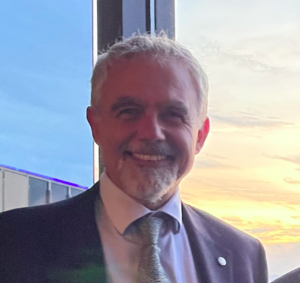 VINCENZO SUMMA is a full professor of Chemistry at Federico II University, Naples. Vice-president of IRBM Science Park spa from February 2010. IRBM Science Park is a research center formally a spin-off of the Merck Research Laboratories located in Rome. He graduated in Chemistry at Università Degli Studi di Roma ‘La Sapienza’ in 1991 and in 1996 obtained his Ph.D. in Organic Chemistry at Bergische Universität Wuppertal. From 1992 to 1994 was a researcher at the University of Rome “La Sapienza”. He became Research Fellow Merck from March 1996 to August 2001. Here was promoted Senior Research Fellow (September 2001 ); Senior Investigator Merck (November 2005 ) and Director in the medicinal chemistry department from November 2007 to October 2009. IN 2017 The American Chemical Society Honors IRBM Leading Scientists as Heroes of Chemistry for their effort in developing drugs, among which 2 antiviral drugs invented by the team and currently on the market,ISENTRESS®, Grazoprevir-ZAPATIER®, From June 2010 is Associate Researcher CNR-ITB National Research Council – Institute for Biomedical Technologies and from April 2013 Member of the Board of Directors at CNCCS Consortium (IRBM SP – Consiglio Nazionale Delle Ricerche – Istituto Superiore di Sanità).
VINCENZO SUMMA is a full professor of Chemistry at Federico II University, Naples. Vice-president of IRBM Science Park spa from February 2010. IRBM Science Park is a research center formally a spin-off of the Merck Research Laboratories located in Rome. He graduated in Chemistry at Università Degli Studi di Roma ‘La Sapienza’ in 1991 and in 1996 obtained his Ph.D. in Organic Chemistry at Bergische Universität Wuppertal. From 1992 to 1994 was a researcher at the University of Rome “La Sapienza”. He became Research Fellow Merck from March 1996 to August 2001. Here was promoted Senior Research Fellow (September 2001 ); Senior Investigator Merck (November 2005 ) and Director in the medicinal chemistry department from November 2007 to October 2009. IN 2017 The American Chemical Society Honors IRBM Leading Scientists as Heroes of Chemistry for their effort in developing drugs, among which 2 antiviral drugs invented by the team and currently on the market,ISENTRESS®, Grazoprevir-ZAPATIER®, From June 2010 is Associate Researcher CNR-ITB National Research Council – Institute for Biomedical Technologies and from April 2013 Member of the Board of Directors at CNCCS Consortium (IRBM SP – Consiglio Nazionale Delle Ricerche – Istituto Superiore di Sanità).

